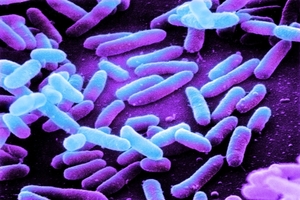PHE issues advice to people travelling to Egypt
PHE is issuing advice to people travelling to Egypt after a number of people, including children, have returned with a serious illness caused by E. coli infection.

Ecoli
All travellers had been to the Hurghada region of Egypt. Public Health England’s (PHE’s) scientists are gathering further information to understand the cause of these infections.
E. coli can cause an unpleasant diarrhoeal illness with stomach cramps and occasionally fever. Most people will recover without the need for medical treatment, but younger and older people may go on to develop complications of the infection, leading to kidney failure. This rare condition is called haemolytic uraemic syndrome (HUS), which in very rare circumstances can be fatal.
E. coli is caught through ingesting contaminated food or water.
PHE recommends travellers to the region to:
- where possible, avoid eating salads and uncooked vegetables
- only eat fruit they can peel
- avoid unpasteurised milk, cheese and ice cream
- avoid food that has been left uncovered in warm environments and exposed to flies
- ensure all meat is cooked thoroughly before you eat it, avoiding any meat that is pink or cold
- avoid ice, unless made with filtered or bottled water, and tap water, even when brushing teeth
- only drink bottled water or use ice made from bottled/filtered water
- wash your hands thoroughly after visiting the toilet, and always before preparing or eating food. Alcohol gel can be helpful (but not entirely effective) when hand washing facilities are not available
- when swimming, try and avoid swallowing water where possible and supervise children when swimming.
- don’t swim whilst ill
For more information, visit NHS.UK.
Dr Nick Phin, Deputy Director, National Infection Service, Public Health England, said:
We are aware of people returning from Egypt with E. coli infections, some with a serious kidney complication called haemolytic uraemic syndrome (HUS). We are gathering information about those affected to better understand the cause.
There are simple precautions that travellers can take. These include ensuring meat is cooked thoroughly, not drinking tap water or ice made from tap water and trying to avoid swallowing water when swimming.
Anyone suffering from diarrhoea and vomiting should ensure they keep well hydrated and seek medical advice if their symptoms don’t improve within 48 hours. They should also avoid preparing or serving food while they have symptoms and thoroughly wash their hands after using the toilet to stop the bug being passed to others. Individuals with symptoms after returning from holiday should seek medical advice from their GP or NHS 111.
Background
There have been 18 cases of Shiga toxin-producing Escherichia coli (STEC) in individuals returning from Egypt in 2019.
Symptoms of infection with STEC can include diarrhoea, including bloody diarrhoea, which may be accompanied by nausea, vomiting, abdominal pain and cramps. In most cases of STEC, symptoms will resolve without treatment.
A small number of cases, go on to develop a serious condition called Haemolytic Uraemic Syndrome (HUS). This may lead to kidney failure.
There have been 16 cases of HUS (Hemolytic uremic syndrome) in individuals, including children, who have been to the Hurghada region of Egypt between 2009 and 2019. There has been one case in 2019.
E. coli infection can cause a range of symptoms, including severe abdominal pain, diarrhoea and blood in diarrhoea.
If you or one of your party fall ill or have an accident during your holiday, seek medical advice and report it to the reception, your travel provider, representative or their local agent.
Read more information about E. coli https://www.nhs.uk/conditions/diarrhoea-and-vomiting/
UKHSA press office: National Infection Service
UKHSA press office, infectious diseases
61 Colindale Avenue
London
NW9 5EQ
Updates to this page
-
26 July 2019: Updated with additional guidance for holidaymakers.; 16 July 2019: First published.